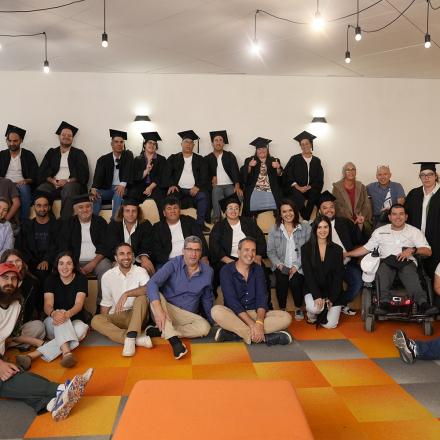It was a team that could only have met at Sapir Academic College: four women – one a secular Jew, another strictly Orthodox, and two Arab sisters of Arab Bedouin background. Meital Bergman, Yovel Cohen, and Sondos and Dalal Sraiaa come from entirely different worlds. Working together on their final project for a BA in communications, they discovered the poignant effort to confront loss was a catalyst for empowerment and sharing.
Meital, Sondos and their fellow students decided to collaborate on a podcast about “silent birth,” which is the Hebrew term for “stillbirth,” and its emotional impact on grieving parents. The result is powerful, bracing in its empathy. Listening to the story of Dikla and Omri Lerner as they relate the otherwise laconic account of an unsuccessful pregnancy and its termination at a hospital, one is caught up in a deeper emotional drama. Meital describes how her team used the radiophonic medium to compelling artistic effect. As Dikla discusses her pregnancy with the doctor, slowly coming to the realization that her unborn child has no pulse, the podcast takes a jarring pause, a lengthy silence before introducing the the word itself: “silent birth.”
As Meital observes, the Israeli term has a more literary quality than its English equivalent. This kind of birth is met with neither parental cries of joy nor the primal wailing of a newborn infant. It confronts us with nothing but silence, and the fathomless pain only a parent can feel. Sondos brings her own cultural insights to the project. Rarely discussed in Arab society, the issue of silent birth was zealously avoided in the Bedouin town where she grew up, much like the memory of her own, childhood bereavement.
Working on the podcast brought her face to face with a couple who confronted their loss in painstaking detail, and a husband who defied masculine stereotypes to honestly express his own grief. This, for all four women, was a powerful feminist statement in and of itself, and a testament to the essential humanity that unites us all. You can hear the story (in Hebrew) on Sap Ear, podcast of the Communications’ Department at Sapir Academic College.
More News
Empowering the Future

